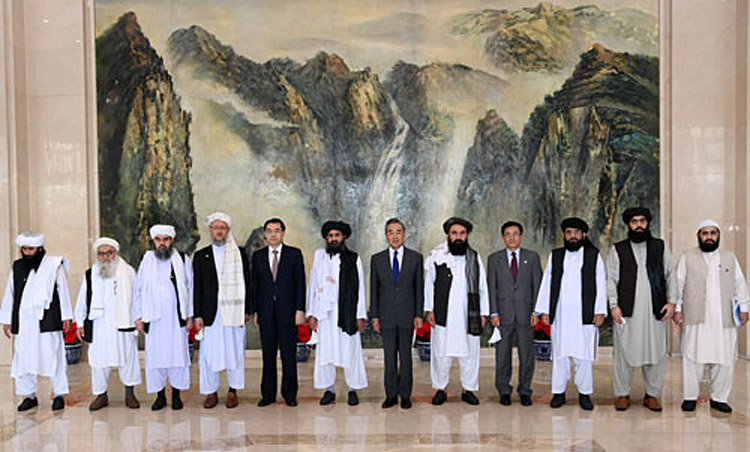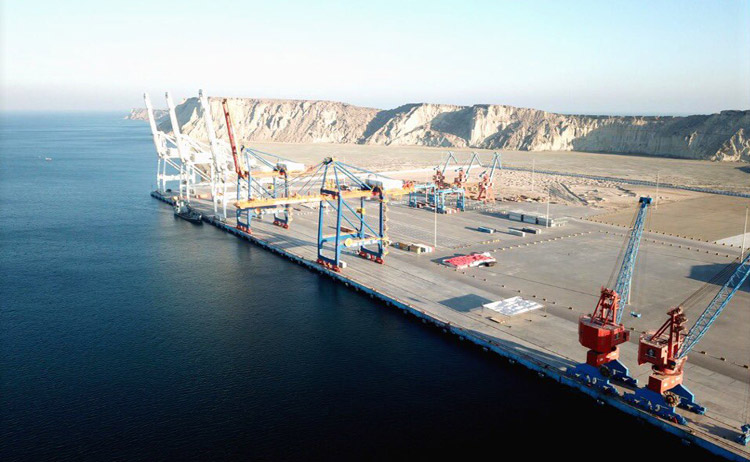INDIAN ARMED FORCES CHIEFS ON OUR RELENTLESS AND FOCUSED PUBLISHING EFFORTS

The insightful articles, inspiring narrations and analytical perspectives presented by the Editorial Team, establish an alluring connect with the reader. My compliments and best wishes to SP Guide Publications.

"Over the past 60 years, the growth of SP Guide Publications has mirrored the rising stature of Indian Navy. Its well-researched and informative magazines on Defence and Aerospace sector have served to shape an educated opinion of our military personnel, policy makers and the public alike. I wish SP's Publication team continued success, fair winds and following seas in all future endeavour!"

Since, its inception in 1964, SP Guide Publications has consistently demonstrated commitment to high-quality journalism in the aerospace and defence sectors, earning a well-deserved reputation as Asia's largest media house in this domain. I wish SP Guide Publications continued success in its pursuit of excellence.
- MoD initiates comprehensive review of Defence Acquisition Procedure 2020, pushes for defence reforms
- G7: The Swansong
- Kalinga Connect: South Asia to Polynesia
- Must Credit DRDO for Operation Sindoor, now what is next for defence R&D?
- The layered Air Defence systems that worked superbly, the key element of Operation Sindoor
- Operation Sindoor | Day 2 DGMOs Briefing
- Operation Sindoor: Resolute yet Restrained
China's Kabul Diplomacy
Chinese Ambassador to Afghanistan lost no time in opening diplomatic dialogue with the Taliban, indirectly signaling China's recognition of the Taliban regime in Afghanistan
 |
The Author is Former Director General of Information Systems and A Special Forces Veteran, Indian Army |

The Chinese embassy in Kabul remained open throughout the recent Taliban blitzkrieg to capture Afghanistan and continued so even after the Taliban took over Kabul. China's relations with Taliban date back to the era when the Mujahedeen were trained and armed on Chinese soil to oust the Soviets from Afghanistan – simultaneous to US doing similarly in Pakistan. After the US invasion of Afghanistan in 2001, China continued to arm, support and advise the Taliban in fighting the US and NATO forces.
On July 28, 2021, Chinese foreign minister Wang Yi had welcomed the Taliban delegation led by Mullah Abdul Ghani Baradar in Tianjin, China calling the Taliban an "important military and political force". Yi sang the expected deceptive song of Afghan-led and Afghan-owned principle, peace and reconciliation process, and inclusive political structure that suits Afghanistan's national realities. Mullah Baradar responded that China has always been a reliable friend of the Afghan people and that Taliban will make effortsto enablean investment environment in Afghanistan.
China wants the Afghan Taliban to restrain the East Turkestan Islamic Movement (ETIM) and the Uyghur
Wang Yu, Chinese Ambassador to Afghanistan lost no time in opening diplomatic dialogue with the Taliban, indirectly signaling China's recognition of the Taliban regime in Afghanistan. Yu's invite perhaps was also to show gratitude that using the Taliban in conjunction Pakistan, China could kick the US out of its last foothold in Asia. Hence, on August 25, 2021, Wang Yu invited Abdul Salam Hanafi, deputy head of Taliban's political office at Kabul to the Chinese Embassy for talks. It was more of ‘Chaploosey – which is the Chinese version of diplomacy because China wants the Afghan Taliban to restrain the East Turkestan Islamic Movement (ETIM) and the Uyghur.

In characteristic Chinese form, Yu did not divulge details of his talks with Hanafi but saidthat Kabul is naturally an important platform and channel for us to discuss key issues. China respects the Afghan people's independent decision on their own future and destiny, supports the implementation of the Afghan-led and Afghan-owned principle, and stands ready to continue to develop good-neighbourly relations of friendship and cooperation with Afghanistan and play a constructive role in the peace and reconstruction of the country."
With reference to the Yu-Hanafi talks, Chinese Foreign Ministry spokesman Wang Wenbin stated during a media briefing in Beijing, "China and the Afghan Taliban have unimpeded and effective communication and consultation." It was more than expected that China will extend total political, military, economic and infrastructure support to Taliban boosting its own economy in the process. According to a review based on intelligence reports, China has once again proposed construction of the Peshawar-Kabul motorway as an extension of CPEC in Afghanistan, amid the recent developments in Afghanistan.
China has been eyeing to extend the Belt and Road Initiative (BRI), which is the flagship project of CPEC into Afghanistan and beyond to Eurasia. In fact, China plans the BRI and another five corridors, which will deliver infrastructure development in more than 65 countries, accounting for 60 per cent of the world's population and 40 per cent of global GDP, according to the CPEC website.
US deliberately handed over Afghanistan to the Taliban so that China gets sucked into Afghanistan, which will relieve Chinese pressure on Taiwan
There is a viewpoint that the US deliberately handed over Afghanistan to the Taliban so that China gets sucked into Afghanistan, which will relieve Chinese pressure on Taiwan. But China is unlikely to deploy troops in Afghanistan like the US and NATO did. China has nurtured the Afghan Taliban over the past decades because of multiple interests in Afghanistan, which include - forcing the US-NATO troops to quit; extend the BRI to Afghanistan and beyond; gain control of the $1-3 trillion oil and mineral reserves of Afghanistan; boost own economy in rebuilding Afghanistan with added employment for Chinese companies, and; extend strategic influence in Afghanistan in conjunction with adjoining Iran.
There are different opinions whether China can ensure that the Afghan Taliban will restrain the ETIM and the Uyghur from attacking China. However, aside from other persuasive measures, China will use its considerable economic clout to achieve this. The US has blocked any central bank assets the Afghan government has in the US to the Taliban, which includes any accounts managed by the Federal Reserve and other US banks.
China will extend full monetary support to the Taliban – the way it has debt trapped Pakistan, Sri Lanka and some other countries
The International Monetary Fund (IMF) and the World Bank too have suspended monetary help to the Taliban controlled Afghanistan. China will use these developments by extending full monetary support to the Taliban – the way it has debt trapped Pakistan, Sri Lanka and some other countries. Strapped for cash, the Taliban will have little choice especially if assured that repayment of loans could be adjusted through finances accruing from the BRI as well as through mining minerals and oil.
With the Tehrik-i-Taliban targeting Pakistan in recent years, there is no doubt that Pakistan is likely to face more terrorism with the Taliban controlling Afghanistan. Views are being aired that the US arms in possession of Taliban now will first be used in Pakistan. But that should be no consolation for the increased terror threat that India is likely to face. Afghan-origin terrorists have been operating in J&K earlier whether as part of the Al Badr terrorist organisation or infiltrated by Pakistan. Already intelligence inputs reveal that Pakistan has started relocating its anti-India terrorist camps to the eastern and southern parts of Afghanistan. Therefore, extreme caution and pro-active or rather pre-emptive pro-active actions should be the buzzwords.





